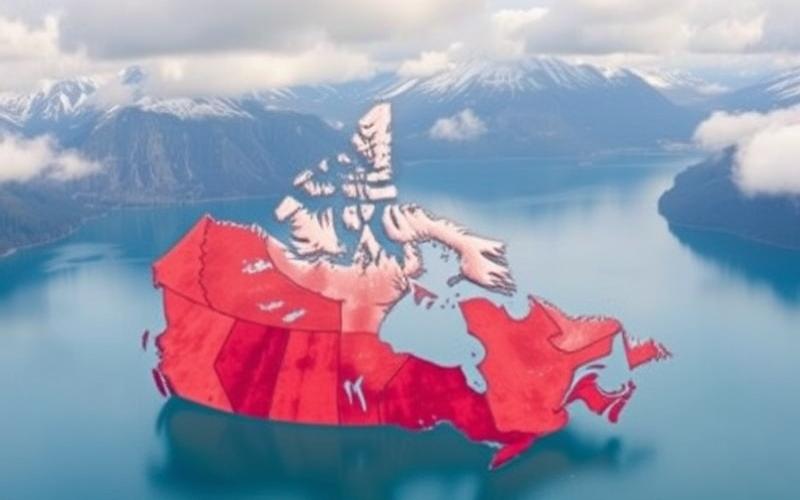
 Published on and written by Cyril Jarnias
Published on and written by Cyril Jarnias
Purchasing real estate often represents the most significant investment in a person’s life. In Canada, the dynamic real estate market offers numerous opportunities but also comes with its share of challenges. To help you navigate this complex process, here is a detailed guide to common mistakes to avoid when buying real estate in Canada.
Not Having a Clear Budget Vision
One of the most frequent mistakes is starting the real estate purchase process without a precise understanding of your budget. Many buyers focus solely on the purchase price, forgetting the numerous additional costs that come with it.
It’s crucial to account for all costs associated with acquiring real estate, including:
- Notary fees
- Property taxes
- Insurance fees
- Potential renovation or repair costs
- Condominium fees if applicable
Additionally, it’s important to maintain financial flexibility to handle unexpected expenses. Proper budget planning will help you avoid unpleasant surprises and ensure you can manage the total cost of your investment long-term.
Good to Know:
According to financial experts, it’s recommended not to allocate more than 30% of your monthly income to mortgage payments.
Neglecting the Importance of Location
The saying “Location, location, location” remains relevant in Canadian real estate. Too often, buyers are drawn to an attractive property without sufficiently considering its surroundings.
A good location can significantly influence your property’s future value and your quality of life. Here are some essential points to consider:
- Proximity to public transportation
- Access to schools, businesses, and services
- Neighborhood crime rates
- Urban development projects in the area
- Overall neighborhood quality of life
Take time to explore the neighborhood at different times of day and week. Speak with local residents to get a better sense of life in the area. A good location can compensate for certain property flaws, while a poor location can devalue even the most beautiful house.
Good to Know:
Cities like Toronto, Vancouver, and Montreal experience high real estate demand, which can make well-located properties particularly expensive. Consider exploring developing neighborhoods that might offer good long-term appreciation potential.
Underestimating the Importance of Pre-Purchase Inspection
In the excitement of purchasing, many buyers neglect the crucial importance of pre-purchase inspection. This step is essential for avoiding costly surprises after acquisition.
A professional inspection can detect potential problems that might not be visible to the naked eye, such as:
- Structural issues
- Electrical or plumbing defects
- Presence of mold or asbestos
- Insulation or ventilation problems
- Signs of insect or rodent infestation
The inspection can give you negotiating power if problems are discovered, or allow you to withdraw from the purchase if necessary repairs exceed your budget. Don’t skimp on this crucial step that could save you thousands in unexpected repairs.
Good to Know:
In Canada, it’s common to include an inspection clause in the purchase offer, allowing withdrawal from the transaction if the inspection reveals major problems.
Ignoring Local Market Trends
The Canadian real estate market can vary significantly from region to region, and even between neighborhoods within the same city. A common mistake is not sufficiently researching local market trends before making an offer.
A good understanding of the local market will help you make a competitive offer without overpaying. Here are some elements to consider:
- Average prices of similar properties in the neighborhood
- Average time properties stay on the market
- Price trends over recent years
- Development projects that could affect future value
- Market seasonality (certain times of year are more favorable for purchases)
Don’t hesitate to consult a local real estate agent who can provide valuable market information. Their expertise can help you avoid overpaying or missing a good opportunity.
Good to Know:
The Canadian Real Estate Association (CREA) regularly publishes reports on national and regional real estate market trends, which can be a valuable source of information.
Neglecting Legal and Regulatory Aspects
Real estate purchase in Canada involves numerous legal and regulatory aspects that vary by province and municipality. Ignoring these aspects can lead to serious legal and financial problems.
It’s crucial to thoroughly understand all legal documents and ensure the property complies with all current regulations. Here are some important points to verify:
- Property title and any easements
- Building permits for any modifications made to the property
- Condominium regulations in the case of a condo
- Zoning restrictions that could affect your future plans
- Applicable local taxes and fees
It’s strongly recommended to hire a real estate lawyer to review all legal documents before finalizing the purchase. This might seem costly initially, but it can prevent much more expensive problems long-term.
Good to Know:
In Quebec, a notary’s presence is mandatory to finalize a real estate transaction, unlike the rest of Canada where a lawyer may suffice.
Rushing the Purchase Decision
In a competitive market like Canada’s, it can be tempting to rush so as not to miss an opportunity. However, making a hasty decision is one of the costliest mistakes you can make in real estate.
Taking time to think carefully and complete all necessary checks is crucial for a successful purchase. Here are some tips to avoid rushing:
- Visit the property multiple times, at different times of day
- Take time to fully understand all financial aspects of the purchase
- Don’t hesitate to seek outside opinions (family, friends, professionals)
- Compare with other similar properties on the market
- Ensure the property truly matches your long-term needs
Remember that purchasing property is a long-term commitment. It’s better to take a little more time to make the right choice than to end up with a property that doesn’t suit you or causes financial problems.
Good to Know:
In some Canadian provinces, there’s a legal cooling-off period after signing a purchase offer during which you can withdraw without penalty. Research the specific laws in your province.
Underestimating Maintenance and Renovation Costs
Many buyers, particularly first-time buyers, underestimate costs related to property maintenance and renovation. This mistake can quickly turn a promising investment into a financial drain.
It’s essential to have a realistic view of long-term costs associated with property ownership. Here are some points to consider:
- Property age and general condition
- Heating and cooling costs, particularly important in Canada
- Renovations needed short and medium-term
- Regular maintenance costs (gardening, snow removal, etc.)
- Predictable major repairs (roof, windows, etc.)
Budget annually for maintenance and repairs, typically estimated between 1% and 3% of the property’s value. This will help you avoid unpleasant surprises and maintain your investment’s value long-term.
Good to Know:
The Canadian climate can be particularly harsh on buildings. Maintenance costs may be higher in some regions due to extreme weather conditions.
Neglecting the Importance of Good Insurance
A common mistake is underestimating the importance of adequate home insurance. In Canada, where weather conditions can be extreme, good insurance coverage is essential.
Well-chosen insurance can protect you against many risks and prevent significant financial losses. Here are key points to consider:
- Coverage for weather-related damage (floods, storms, etc.)
- Protection against theft and vandalism
- Liability coverage for accidents on your property
- Personal property coverage
- Options for natural disasters specific to your region
Take time to compare different insurance offers and thoroughly understand what is and isn’t covered. Don’t hesitate to consult an insurance broker for personalized advice.
Good to Know:
In some Canadian regions prone to flooding or earthquakes, specific insurance may be necessary or strongly recommended.
Ignoring the Importance of a Good Mortgage Broker
Many buyers settle for their usual bank’s loan offer without exploring other options. This is a mistake that can cost dearly long-term.
A good mortgage broker can save you thousands of dollars over your loan term. Here’s why it’s important to use a broker:
- Access to various lenders and mortgage products
- Personalized advice on the loan structure best suited to your situation
- Help negotiating better terms with lenders
- Clear explanation of different options and their implications
- Assistance throughout the loan approval process
Don’t hesitate to consult multiple brokers to compare their offers and approach. A good broker can not only save you money but also guide you through the complex mortgage process.
Good to Know:
In Canada, mortgage rates can vary significantly between lenders. A difference of just 0.5% on a 25-year loan can represent tens of thousands of dollars in savings.
Conclusion: Key to Successful Real Estate Purchase in Canada
Purchasing real estate in Canada is a complex process requiring careful preparation and good understanding of the local market. By avoiding these common mistakes, you significantly increase your chances of making a wise and satisfying investment.
Remember that every situation is unique. Don’t hesitate to surround yourself with competent professionals – real estate agents, inspectors, lawyers, mortgage brokers – who can guide you through this important process. Their expertise can prove invaluable for navigating the complexities of the Canadian real estate market.
Finally, keep in mind that purchasing property is a long-term investment. Take time to carefully consider your current and future needs, and ensure your decision aligns with your long-term financial and personal goals.
Good to Know:
The Canadian real estate market has experienced significant growth in recent years, but it’s important to remain realistic in your expectations. A well-considered real estate purchase can offer financial stability and quality of life, but shouldn’t be considered a way to get rich quickly.
Disclaimer: The information provided on this website is for informational purposes only and does not constitute financial, legal, or professional advice. We encourage you to consult qualified experts before making any investment, real estate, or expatriation decisions. Although we strive to maintain up-to-date and accurate information, we do not guarantee the completeness, accuracy, or timeliness of the proposed content. As investment and expatriation involve risks, we disclaim any liability for potential losses or damages arising from the use of this site. Your use of this site confirms your acceptance of these terms and your understanding of the associated risks.



















